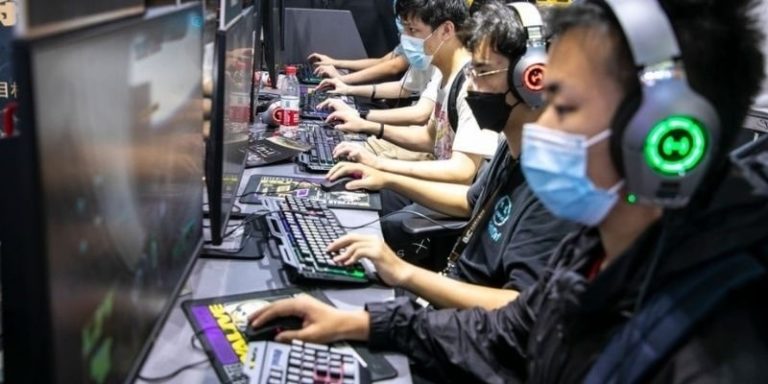China’s Crackdown on Video Games
The Chinese focus on child health leaves little room for playing games.
By: GenZ Staff | September 4, 2021 | 634 Words

(Photo by VCG/VCG via Getty Images)
How many hours per week should kids play video games – and should the government be able to make a law about it?
China’s government made headlines recently with a new law making it illegal for people under the age of 18 to play video games more than three hours most weeks. Chinese state-run news agency, Xinhua, reported that gamers will only be allowed to play on Fridays, Saturdays, Sundays, and official holidays – and only for one hour, between 8-9 p.m. The law seems to specifically target online gaming.
The new law, written by the Chinese National Press and Publication Administration (NPPA), states that online game companies will have to make players register using their real names and birth dates, so kids can’t use fake accounts to get around the rules. The government would “deal with companies that fail to put measures in place,” according to the Xinhua report.
China says the change is meant to protect kids’ “physical and mental health” and prevent “youth video game addiction.” It also said that gaming distracts young people from study and their family life.
Regulating Video Games
This isn’t the first time China has regulated video games. From 2000 to 2015, many games consoles were banned in the country, leading to online PC gaming becoming more popular. Video game content is also controlled to avoid images the Chinese government doesn’t like.

(Photo by Zhang Peng/LightRocket via Getty Images)
The new law expands on an old rule from 2019. It limited those under age 18 to 13 hours of play per week – including 90 minutes on weekdays, with three hours per day on weekends and holidays. All-night sessions were banned, as kids weren’t allowed to play between 10 p.m. and 8 a.m. The stricter rule comes just after Chinese government media claimed that online video game addiction is a danger that could “destroy a generation.”
Images from internet cafés showing young people cooped up playing for hours on end evoke a strong response. These scenes have caused many people to applaud the Chinese government for trying to improve the health of the country’s children. Others have argued that parents could have stopped the behavior without a government mandate.
Freedom or Health?
In the U.S., there has been discussion about regulating video games, mostly due to concern about violent content. However, there are limits on how much influence the government has over people’s choices. The basic freedoms and liberties enjoyed by Americans mean they can decide for themselves what kind of lifestyle they want. This includes how they spend their free time, what they eat and drink, who they spend time with, what they say, and other choices.
Many other countries, like China, don’t have such freedoms – and the government has more control over the private lives of the people. Should the state have so much influence over its citizens?
Video Game Addiction?
In the United States, 227 million people play video games of some form, sparking debate over damage caused by too much gaming. So, are video games good or bad? The answer seems to be that gaming is okay in moderation.
According to the American Addiction Centers:
Not all researchers agree that video gaming is a harmful or addictive activity. Many people, including parents, believe that video games expand the imagination, give children the opportunity to work collaboratively, and sharpen cognitive skills. Yet when young people spend most of their time playing video games at the expense of schoolwork, physical exercise, family events, or social activities, the benefits of gaming seem less certain.
With many people concerned about the effects of gaming on the young generation, will other countries follow China’s example?
















